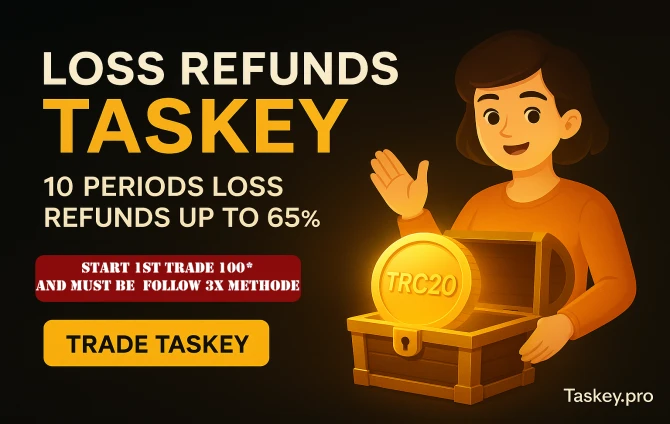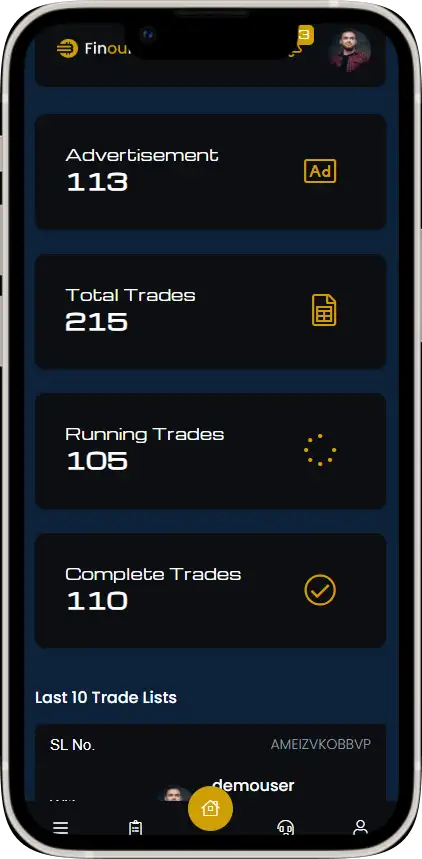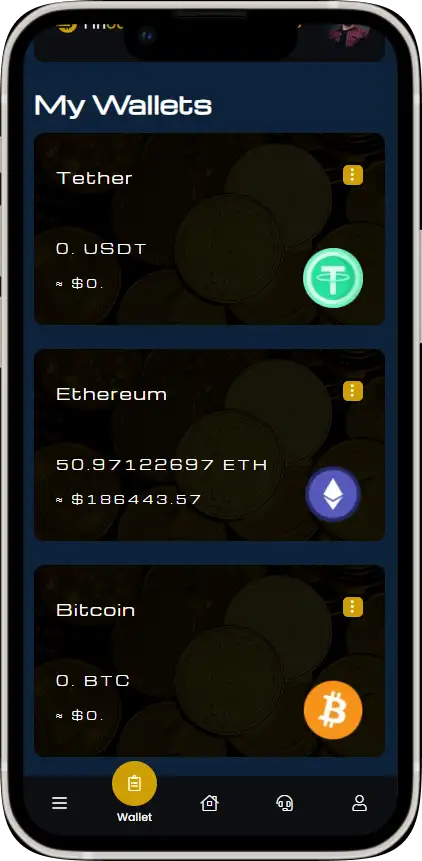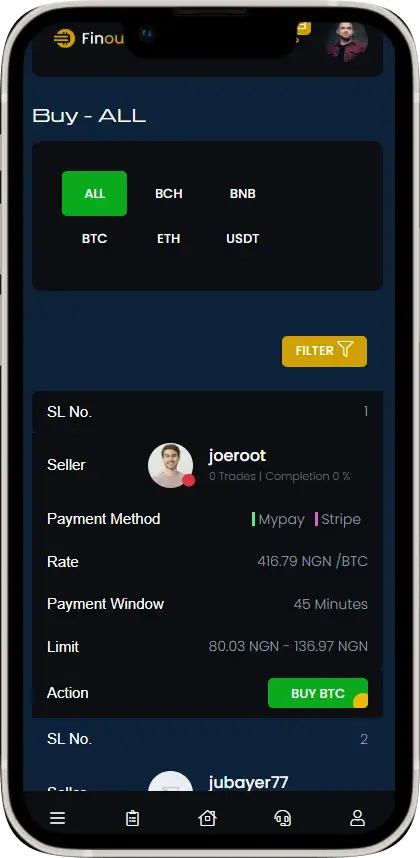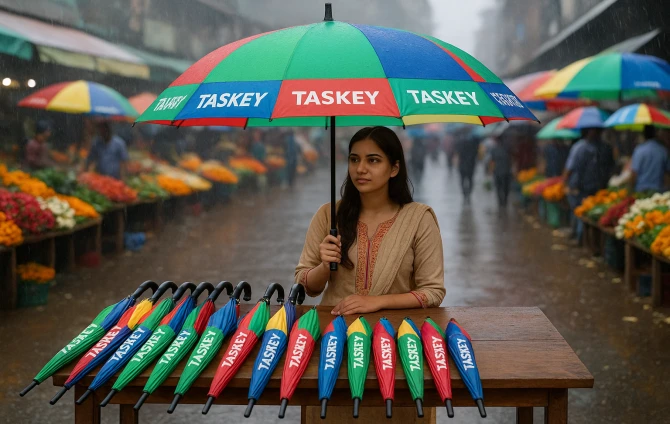
The Umbrella Girl Who Changed India with 4,000 Umbrellas and a Dream
It began on a muddy street near a giant flower bazaar, where vendors argued over the price of jasmine and roses. The air was thick with the smell of marigold garlands, rotting leaves, and boiling tea. Among all that chaos, stood a young woman named Meera.
Meera was twenty-two, a slim girl with sun-darkened skin, wearing a faded pink kurta. She had grown up in a village so poor that sometimes she walked barefoot to school, carrying an old umbrella to shield herself from the monsoon. That umbrella was her most precious belonging.
Years later, umbrellas would again change her fate.
Meera had come to the flower bazaar because she knew a crowd meant opportunities. The place overflowed with people — flower sellers, temple-goers, delivery men, rickshaw drivers — all rushing in and out every day.
She arrived there with a table she borrowed from a friend, a stack of colorful umbrellas branded with Taskey in bright lettering, and a battered smartphone. The umbrellas came in every shade imaginable: red, blue, green, yellow, printed with “TASK” or “KEY” in big bold letters.
Monsoon had arrived early that year, and a steady drizzle made the air heavy. Shoppers rushed by, trying to cover their heads with newspapers or scraps of plastic.
Meera smiled and held up an umbrella, calling out:
“Free Taskey umbrella with your sign-up! No cost, only a few details!”
At first, no one paid attention. But the rain grew stronger, and slowly, people started to notice her table.
One woman, carrying a huge pile of flowers on her head, approached.
“Ki bolcho? Free chata?”
(What are you saying? Free umbrella?)
Meera nodded, carefully explaining how Taskey worked: a digital payments app with a referral program. Sign up, get bonuses, get a free umbrella.
Soon, the woman signed up. Then her neighbor came. Then a rickshaw driver. Then three men from a nearby tea shop. Word spread like wildfire.
By the end of the day, Meera had registered thirty new Taskey users and handed out all the umbrellas she had brought. She was exhausted, wet, but happier than she had been in years.
The Seed of Hope
Meera was once so poor that even owning a working umbrella felt like a luxury. She remembered days sitting in school with wet hair, trying to dry her books over a tiny kerosene lamp.
So seeing others grateful for these umbrellas felt deeply emotional for her. It was as if she was giving them a shield she herself had never truly had.
Every signup meant a small commission from Taskey, and Meera tracked them carefully on her phone.
That first week, she made enough to buy food for her family for an entire month.
For the first time ever, she had hope.
Rising Demand
The next weeks were a blur. Every day, she woke up before sunrise, bought a fresh stack of umbrellas from a wholesaler, painted them with the Taskey brand, then returned to her spot near the flower bazaar.
People recognized her. They would shout, “Chata didi asche!” — “the umbrella sister has come!”
It made Meera proud, almost tearful. She no longer felt invisible.
Soon, other vendors in the market began to respect her. The flower sellers, once suspicious, started asking for umbrellas too, then referring their cousins, their brothers, their entire extended families.
Meera was working 14 hours a day, rain or shine, but she didn’t mind. Every time a customer smiled, holding a bright new umbrella, she felt a spark in her heart.
The Numbers Grow
Within three months, Meera had handed out over 700 umbrellas. Her commissions grew enough to rent a tiny one-room apartment near the market, so she no longer had to walk miles from her old slum neighborhood.
She bought new clothes, repaired her mother’s roof back in the village, and began saving money to maybe one day open a real shop.
But what truly amazed her was how fast the Taskey signups were growing. She saw older grandmothers signing up, teenage flower sellers, vegetable hawkers — the entire community.
And each time, she was there, with a kind smile and a free umbrella to shield them from the rain.
A Powerful Reputation
By the end of the monsoon season, Meera had crossed 1,500 umbrellas distributed. It seemed impossible: a girl who once could not afford a school umbrella was now giving them away by the thousands.
And people remembered her. Whenever someone needed help setting up a Taskey account, they would point to Meera. “She’s the one you trust,” they’d say.
The flower market became her stage. It was a place where she built friendships, where people brought her tea, helped guard her table, even gave her leftover flowers to take home.
Meera had earned something beyond money — she had earned respect.
A Bigger Vision
One night, lying on her new thin mattress in her tiny rented room, Meera allowed herself to dream bigger.
“If I can distribute 1,500 umbrellas,” she thought, “maybe I can build a permanent stall. Maybe even hire others.”
The next morning, she decided to do it.
She borrowed a small loan from Taskey’s microcredit partner and bought a metal frame to build a permanent stall beside the flower bazaar. She painted it bright yellow, with bold letters saying “Taskey Signup + Umbrella Booth”.
She set up a shelf for the umbrellas, and even posted a small poster about Taskey features:
✅ Pay anywhere
✅ Refer and earn
✅ Secure and easy
She felt unstoppable.
More Than an Umbrella
Soon Meera realized she wasn’t just giving umbrellas — she was giving people a sense of safety. They saw the umbrellas as a protection against not just the rain, but also as a symbol of their new financial identity.
For many, Taskey was their first real experience with a digital wallet. Meera patiently taught them how to send money, how to avoid fraud, and how to get help if they forgot their PIN.
“It’s your own bank in your pocket,” she’d say, smiling.
People trusted her more than they trusted big corporate agents.
An Unexpected Drought
After the heavy monsoon, there came a drought. Hardly any rain fell for months, and fewer people felt the need for umbrellas. Meera watched her signups slow down, day after day.
It broke her heart.
She remembered what it was like to be hungry, to count every rupee. The idea of going back to that made her sick with fear.
One evening, as the sun burned the horizon, Meera sat alone in her stall. She had given away over 4,000 umbrellas — but now, no one needed one. Her entire city seemed to have them already, thanks to her.
There was no one left to serve.
Memories of the Past
As she watched the flower vendors packing up, Meera’s mind wandered back to her childhood.
She remembered sharing a single umbrella with two siblings, soaked to the bone on the walk to school. Her father had left them early, and her mother had to beg for sewing work to keep food on the table.
Back then, no one had ever helped Meera. She had been alone.
But here, in the flower market, she had created something different — she had made sure everyone had an umbrella. That meant no other child would suffer the way she had.
That knowledge gave her comfort, even as her income dried up.
Turning Sadness Into Purpose
One night, she cried, sitting on the floor of her tiny room. “How can I go on?” she asked the walls.
But then she wiped her eyes, stood up, and looked in the mirror.
“If I gave away 4,000 umbrellas,” she thought, “maybe I can teach 4,000 people something else.”
That was the moment everything changed.
She realized she could expand beyond umbrellas. She could offer something new to the same customers — maybe education, maybe job skills, maybe microloans.
People already trusted her. They would listen.
The Next Mission
So the very next day, Meera printed small flyers on the cheapest printer she could find:
“Digital Skills Workshop — Free!”
She stuck them all around the flower bazaar, next to the piles of marigolds and roses.
When the vendors saw it, they smiled:
“Chata didi abar kichu notun korbe!”
(“The umbrella sister is doing something new again!”)
Her First Class
Meera took a borrowed folding table and set up behind her stall. She brought a single smartphone, and taught her first group of five people how to:
✅ Use the Taskey app
✅ Avoid scams
✅ Set a secure password
✅ Send money safely
The students were fascinated. These were vegetable sellers, flower porters, rickshaw drivers — people who had never been taught even the basics.
And they trusted Meera completely.
A New Beginning
Within weeks, Meera was running free classes twice a day. Word spread, and soon women who sold flower garlands were coming with their teenage daughters. They wanted the girls to learn, so they could work safely in the modern world.
Meera felt powerful in a way she had never dreamed. Even if the umbrella demand had ended, her mission had grown far beyond that.
She was now a teacher.
Support Arrives
One day, Taskey’s regional manager heard about her classes and visited. He stood there, amazed, watching her teach a group of twenty people how to protect their OTP codes.
“Meera,” he said, shaking her hand, “you’ve done something incredible. How can we help?”
Meera was stunned. But she quickly gathered her courage and said,
“Give me another smartphone and a whiteboard.”
They gave her both, plus a grant to expand her small training camp.
The Meaning of Success
Standing in front of her new whiteboard, under the bright flower-market sun, Meera took a deep breath.
She thought back to how she had once prayed for just a school umbrella, one to call her own.
Now, she had given 4,000 people their umbrellas — and more importantly, given them knowledge.
She realized success was not about money, or about how many umbrellas she could hand out, but about changing people’s futures.
A Community Hero
The flower bazaar, once a loud chaotic place, became a classroom thanks to Meera. People stopped by just to ask her for advice.
The chai stall owner kept tea ready for her. The flower vendors guarded her materials. A rickshaw driver even fixed her stall’s broken signboard for free.
They all saw her as a sister, a teacher, a friend.
She had created a community.
Looking Ahead
Meera’s dream was now unstoppable. She began planning to bring other young women into her program. She wanted them to learn how to do Taskey referrals, but also how to manage money, speak with confidence, and become leaders.
She knew that if she could lift herself from poverty, she could show hundreds of others how to do the same.
“No one should feel helpless the way I once did,” she reminded herself, every single morning.
Spreading Knowledge
Meera never slowed down. The flower bazaar had become her classroom, and her tiny stall was its beating heart. Every day she set up the folding table, the borrowed whiteboard, and her cheap Android phone.
Sometimes she taught alone, but soon the flower-sellers themselves wanted to help.
“Apa, ami kichu dekhiye dite pari?”
(Sister, can I help teach something?)
One of them, a teenager named Poonam, became Meera’s first volunteer assistant. Poonam had been helping her father sell jasmine garlands since childhood. She knew how to talk to people, how to calm them, and how to get their trust.
Meera taught Poonam everything she knew:
✅ setting a PIN
✅ how to identify phishing messages
✅ how to help customers who forgot their password
The girl learned fast. And then something magical happened — Poonam started training others too.
A Ripple of Empowerment
Word spread, like it always had with Meera. Soon, the fish vendors, the coconut-sellers, even street beggars came to learn from Poonam, who was now a young teacher in her own right.
Meera watched with pride.
It felt like her dream had truly come alive: teach one, then they teach ten more.
The marketplace buzzed with new energy. A place once full of arguments about flower prices was now a place where people swapped security tips and asked questions about digital payments.
The Hard Months
Of course, even with all this success, life was still hard.
Some days, there were no signups at all. The rain poured, flooding the market. People stayed home. Umbrella distribution had completely dried up — there was simply no one left to give a Taskey umbrella to.
Meera sometimes lay awake at night, worrying about her rent, about the cost of data on her phone, about the price of rice.
But she refused to give up.
“I built this once from nothing,” she reminded herself, “I can build it again.”
A Surprising Visitor
One evening, just as the flower-sellers were packing up, Meera saw a middle-aged woman in a crisp blue cotton sari approaching. She looked like an educated city lady, but she was carrying a small bundle of roses.
“Are you the Taskey teacher?” the woman asked.
Meera nodded.
“I heard about you on YouTube,” the woman continued, surprising Meera. “I want you to teach the women at my self-help group.”
Meera felt a rush of happiness. People were noticing her beyond the bazaar.
Branching Out
The next week, Meera packed up her little whiteboard and went to the self-help group. It was a small, bare classroom on the second floor of a crumbling building. Inside, twenty women waited, each one from different backgrounds — tailors, housemaids, part-time vegetable hawkers.
They had no idea what “Taskey” even was.
So Meera started from scratch:
✅ what a digital wallet does
✅ how to sign up
✅ why security matters
They asked endless questions. Some were afraid of being cheated, remembering horror stories of scammers. But Meera’s calm, kind manner put them at ease.
By the end of the workshop, every woman there was signed up, smiling, holding their own Taskey registration slip like it was a treasure.
Meera had tears in her eyes.
The Umbrella Legend
By this time, local journalists had heard about the “chata didi” — the umbrella sister. They came with cameras, wanting to document her story.
Meera was embarrassed at first. But she agreed, as long as they highlighted the lessons, not just the umbrellas.
They published a short documentary online, showing Meera handing out her umbrellas, training kids and older people, laughing with the flower-sellers.
It went viral.
People from all over India saw it and messaged Meera for help. Some asked if they could buy umbrellas from her. Some asked for training materials to copy the program in their towns.
National Recognition
In just a few months, Meera was invited to a digital literacy event in Mumbai. She had never even been on a train to the big city before, but she gathered her courage and went.
Standing on a huge stage with a microphone, she shared her story — how she gave away 4,000 umbrellas, how no one was left without one, and how she taught people to build secure financial habits.
The audience rose to their feet in applause.
Some people cried.
Meera’s Legacy Grows
When she came home from Mumbai, the flower bazar felt even more precious to her. These people were her true supporters — the ones who had trusted her first, before any cameras, before any government support.
She thanked them, and promised to never leave them behind.
And she meant it.
A New Business Plan
Meera took some of the prize money she received from the Mumbai event and invested in a new plan.
✅ One side of her stall would remain for Taskey signups.
✅ Another side would offer paid skills workshops — things like digital marketing, typing skills, or even spoken English.
Her logic was simple: umbrellas had solved an immediate need. But skills would solve long-term needs.
And people responded.
Changing Lives
One of her best students, Poonam, ended up becoming a trainer at the new skills center. Another boy who used to help push flower carts now learned to run Facebook ads for small businesses.
Bit by bit, Meera saw the flower bazar transform from a survival space into a launchpad.
People weren’t just earning. They were dreaming bigger.
Emotional Battles
Of course, Meera sometimes felt lonely. There were moments when she missed her father, wondered what he might think if he saw her now.
She also faced jealousy — other people tried to copy her booth, or spread rumors to steal her customers. That hurt.
But each time she felt doubt, she remembered:
“I already changed the world for 4,000 people. Nothing can erase that.”
That truth kept her strong.
The Dream Expands
By 2040, Meera was working with four other towns, each with their own “umbrella booths” inspired by her model. She traveled by train to train them, carrying her whiteboard and a file of training materials.
The people in those new towns were amazed:
✅ “The umbrella lady herself came!”
✅ “We can learn from her!”
Meera laughed, thinking how she had once been too poor to buy a bus ticket, and now she was traveling like a true business coach.
Global Hopes
Even NGOs from Bangladesh and Nepal reached out, asking if her program could be shared.
Meera agreed happily. She didn’t want to hoard knowledge. She wanted a wave of empowerment across South Asia.
She recorded videos in simple Hindi, showing how to:
✅ talk to strangers
✅ earn their trust
✅ set up simple digital payment systems
Her videos spread far and wide.
A Moment of Peace
One late night, Meera sat alone under the big neem tree next to her stall. The market was empty, the flower-sellers gone, the tea shops closed.
She watched the night breeze ruffle the old Taskey posters, faded but still bright enough to read.
She felt calm.
No regrets.
The girl who could not afford her own umbrella had given 4,000 umbrellas to others, trained thousands more, and helped people see a future they didn’t think possible.
Meera felt her chest fill with pride.
“They will remember me,” she thought, with a quiet smile, “as someone who made them believe.”
An Unthinkable Problem
As Meera’s fame spread, a strange challenge appeared.
One afternoon, as she was helping a group of flower porters with Taskey logins, she realized something: no one needed umbrellas anymore.
Her earlier count had crossed 4,000 umbrellas handed out — and these umbrellas were so well made, so colorful, and so durable, that nearly everyone in the flower bazaar and its surroundings already had one.
People smiled and waved at her, proudly carrying umbrellas marked TASK or KEY. Some had even repaired their umbrellas multiple times, refusing to throw them away because they reminded them of the day Meera helped them open their first digital account.
It was a sweet victory — but also a painful one.
Meera’s face fell as she packed up the last of her stock. Who would take them now?
She had no new customers for the umbrellas.
An Empty Table
One day, she sat at her stall with twenty brand-new umbrellas stacked high, but no one took even a glance.
Even the newcomers in the flower bazaar had relatives who’d already received a Taskey umbrella from Meera.
She watched the drizzle fall over the market, dampening the colors of the marigolds and soaking the ground. But no one needed protection from the rain anymore — they were all prepared, thanks to her.
Her mission had worked too well.
A Crisis of Purpose
Meera was a determined woman. But that afternoon, a feeling of emptiness wrapped around her heart.
She sipped cold tea from a paper cup and felt tears sting her eyes.
“What now?” she whispered to herself.
“Have I reached the end?”
For so long, her entire identity had been built on this umbrella mission. Now it was complete, and she felt adrift, like a boat with no oars.
Remembering Her Roots
Meera closed her eyes and tried to remember the feeling of being a little girl with a torn umbrella on the long road to school, mud sucking at her sandals.
She had felt hopeless then.
Now, so many others had been spared that same hopelessness, thanks to her.
That thought gave her strength.
A New Idea
If umbrellas were no longer needed, maybe something else was.
That night, she stayed up, scribbling plans by candlelight. What else could the people here use?
She thought of one thing: bags.
Most flower vendors carried flowers in torn plastic sacks or old fertilizer bags, which leaked and smelled terrible.
What if she could create Taskey-branded waterproof bags?
She pictured flower-sellers proudly walking the bazaar with clean, strong bags that also carried Taskey branding, just like the umbrellas.
Launching the Next Wave
Meera called the same wholesaler who had once helped her get umbrellas.
“Can you source waterproof shopping bags?”
The man was confused at first. But Meera explained the idea, down to the smallest detail — thick cloth, bright colors, big bold letters: TASK / KEY.
Within two weeks, she had a first shipment of 300 bags.
She set them neatly on her old umbrella table, put up a sign —
“Free Taskey Shopping Bag With New Account”
— and waited.
An Instant Hit
It was perfect timing. Summer had arrived, and people wanted new bags to carry their goods.
The same flower vendors who once came for umbrellas now brought their cousins, aunts, and neighbors for the bags.
Each time Meera explained Taskey:
✅ sign up
✅ learn safe payments
✅ get your free bag
She repeated the process with the same compassion, the same patience, the same smile.
Beyond the Market
Soon, other merchants from a nearby fish bazar also asked for the bags. They had seen flower-sellers using them and wanted their own.
Meera gladly taught them too.
She saw new opportunities:
✅ fish markets
✅ vegetable bazaars
✅ even local milk vendors
The bags turned out to be a genius move.
The Cycle of Hope
Meera realized something beautiful:
“People will always need something free and practical. And they will always need someone to teach them.”
That was her power.
She could repeat this cycle with umbrellas, then bags, then something else, over and over, changing lives every time.
Community Champions
As Meera grew busier, she trained more local women to help with signups and customer service. These women had once been housemaids or daily laborers; now they were “Taskey Champions,” proudly wearing aprons Meera designed.
The Champions learned:
✅ how to help people register
✅ how to teach password safety
✅ how to explain app features
Meera paid them a share of each commission.
Soon, these women earned enough to feed their kids, pay rent, even dream of better futures.
Meera had seeded a sisterhood of entrepreneurs.
A National Stage
News of the bag campaign reached national media. A popular Bengali news channel ran a segment called:
“From Umbrellas to Bags: How Meera is Changing a Community with Taskey.”
That night, Meera watched herself on a tiny second-hand TV. It felt like a dream — seeing her name scroll across the bottom of the screen.
Her phone buzzed nonstop with messages of congratulations.
Family Pride
Back in her village, Meera’s mother saw the news story too. Neighbors gathered around, pointing at the TV.
“Dekho, dekho, amar meye!”
(Look, look, my daughter!)
Meera’s mother had worked all her life as a housemaid. Now, she could stand tall, knowing her daughter was changing the world.
Remembering Their Names
One special thing about Meera: she remembered everyone’s name.
✅ The old flower lady who first trusted her
✅ The rickshaw driver who sent money home through Taskey
✅ The kids who used to run barefoot through the mud
She knew them all.
That memory, that respect for each person, kept people loyal.
Breaking the Barriers
Meera was invited to a women’s entrepreneurship fair in Delhi.
There, she shared her lessons:
✅ keep things simple
✅ meet people where they are
✅ stay honest, no matter what
A banker on stage asked:
“Why don’t you just sell umbrellas instead of giving them away?”
Meera answered without hesitation:
“Because giving builds trust. And trust is priceless.”
The entire room applauded.
The Hard Truth
Meera still faced hurdles. Some government officials thought she was working too independently. A few local leaders tried to muscle in on her program, wanting commissions.
But Meera refused to bend.
She politely explained:
“This is for the people, not for your pocket.”
And people supported her. Her community had her back.
Going Digital
Seeing how many people were curious about Taskey’s app, Meera made a simple YouTube channel, where she posted:
✅ How to use Taskey
✅ How to stay safe
✅ Basic budgeting lessons
These videos exploded in popularity, because she explained things in simple, friendly language.
A Promise to Herself
One day, sitting on a stool by the flower bazaar entrance, Meera made a promise:
“Even if I become famous, I will never forget this street.”
She meant every word.
The place where she had once sat crying, unsure if anyone would take her umbrellas, was the place that had built her.
Beyond the Numbers
When she passed the milestone of 5,000 signups, Meera gathered everyone for a celebration.
They shared sweets, tea, and even flower garlands, honoring Meera and the Champions who had trained so many.
The Bigger Dream
That night, Meera wrote in her battered notebook:
✅ A bigger skills school
✅ A community center
✅ Scholarships for kids
✅ More reusable products, like raincoats
It was a plan for the next five years — another chapter of hope.
A Last Reflection
One evening as the sun set behind the bazaar, painting the sky with gold and purple, Meera stood quietly.
She watched a sea of umbrellas — all colors, all marked “TASK” or “KEY” — opening above the crowds as rain began to fall again.
For the first time in weeks, she saw no fear in their faces, no desperation, just peace.
Because they had Meera.
Because they had Taskey.
Because they had each other.
A New Generation
As the months passed, Meera realized something powerful: the young girls of the market were watching her.
Some of them were barely teenagers, helping their parents string marigolds or carry water buckets. They had grown up seeing Meera stand with pride behind her table, giving away umbrellas, then bags, then knowledge.
They wanted to be like her.
One girl, just sixteen, came up to Meera and said shyly:
“Didi, ami o ektu sekhte chai.”
(Sister, I want to learn too.)
Meera’s heart melted.
She took the girl under her wing, teaching her every step — from setting up the registration books to speaking politely with strangers to explaining safety rules for digital wallets.
Teaching the Teachers
Meera decided to formalize it. She launched a Train the Trainers program for these girls, so they could earn an income and break free of the cycle of selling flowers or taking random housemaid jobs.
The curriculum included:
✅ Public speaking
✅ Customer service
✅ Financial education
✅ Digital safety
✅ Simple bookkeeping
Soon, twenty young women were enrolled. Their confidence blossomed day by day.
Standing Tall
People in the flower market watched in amazement as these girls started helping customers sign up for Taskey, explaining fees, teaching fraud prevention.
It was a revolution: young women teaching older men, older women, even rickshaw drivers.
One of the elder flower sellers told Meera with tears in her eyes:
“Ei meyeguloke ami konodin bhabini emon dekhbo.”
(I never thought I’d see these girls like this.)
Family Changes
Of course, not all families agreed at first. Some fathers worried their daughters would become “too bold” or “forget their place.”
But as the girls brought home small commissions from Taskey, paid for school fees, or helped fix leaking roofs, opinions changed.
Fathers who once scolded them now praised them.
Mothers proudly told neighbors:
“Amar meye Taskey e kaj kore.”
(My daughter works with Taskey.)
Meera’s Pride
Every night, Meera would count the day’s signups.
But what truly made her proud was counting the number of young trainers she had raised.
That was her legacy: not umbrellas, not even Taskey — but the confidence she gave to other women.
National Honors
One year later, Meera was honored by the President of India with a Women’s Empowerment Award.
She traveled by air for the first time in her life, wearing a simple blue cotton sari, to Delhi.
Standing on the grand stage of Rashtrapati Bhavan, she thought of her mother, who once walked barefoot to beg for sewing jobs, and of the days she herself had no umbrella.
Her voice shook as she accepted the award:
“I dedicate this to the girls of my market — the daughters of India.”
Thunderous applause rose around her.
Scaling Up
After returning home, Meera realized the recognition had given her power. She could now apply for bigger grants, partnerships, and even corporate CSR funding.
She quickly drew up a blueprint:
✅ Expand to 15 flower bazaars
✅ Train 100 girls in each
✅ Deliver 20,000 new digital signups
It was an enormous challenge. But Meera was ready.
The 15-Bazaar Plan
Meera gathered her Champions and laid out the strategy.
They would replicate everything:
✅ A trusted trainer
✅ Practical giveaways (bags, umbrellas, someday even raincoats)
✅ Basic digital education
✅ Community building
She divided her team into groups, sent them by train to nearby towns, and reminded them:
“Respect every person. Listen first. And always smile.”
Obstacles
Nothing in India is simple.
They faced power cuts, angry local politicians, people trying to undercut them, even occasional frauds who claimed to be from Taskey to steal data.
Meera kept her head high. Each time a challenge came, she tackled it with grace and patience.
When rumors spread, she visited in person, showed her ID, and spoke face-to-face to clear doubts.
A Family of Champions
By the second year, there were over 200 women trainers under Meera’s guidance.
Some had learned only to write their names before Taskey — now they kept perfect registration logs, did math, spoke to customers, handled phones, and even ran social media pages.
It was a miracle.
Meera no longer had to do everything alone. Her “family” had grown.
A Symbol of Hope
People now called the red-and-green-and-blue umbrellas “Meera’s Umbrellas,” even if they said TASK or KEY on them.
It was a symbol of hope — a promise that someone cared, that help was near, that opportunity was possible.
Going International
NGOs from Sri Lanka and Nepal reached out, asking if they could copy the model.
Meera happily shared training videos, booklets, even online classes.
She laughed one night as she told her mother:
“Ma, chata niye jeta suru korchilam, dekho ekhon koto dure gelo!”
(Ma, what I started with an umbrella has now gone so far!)
Documenting the Journey
A publisher approached Meera, wanting to write her biography.
She agreed, on one condition:
“Write about the girls, not just me.”
She made them promise to share the stories of Poonam, the Champions, the flower women, the fish vendors.
Looking Back
Sometimes Meera stood quietly in the bazaar, surrounded by the noise of bargaining, flower scents, bus horns, and children laughing.
She remembered that first day, so nervous, with just a few umbrellas on a plastic table.
How far she had come.
“If you keep faith, and you keep showing up, you can move mountains,” she whispered to herself.
Building the Future
With funding in place, Meera built:
✅ a digital skills academy
✅ a community kitchen
✅ a daycare for the Champions’ kids
She made sure no one was left behind.
The Big Celebration
On Taskey’s 5th anniversary, Meera organized a massive event.
Over 5,000 people came — flower sellers, fish vendors, teenage Champions, even local politicians who once doubted her.
They all gathered under a forest of colorful umbrellas, dancing to drums, throwing rose petals in the air.
It was a festival of hope.
Meera’s Last Words That Day
Standing on the stage, she raised her hands and said:
“We began with an umbrella, and we built a family. Let’s keep building.”
The crowd roared in applause.
Her Final Reflection
One night, Meera wrote in her notebook:
✅ One umbrella changed 4,000 lives.
✅ One bag changed 10,000 lives.
✅ One woman changed thousands of women’s futures.
She looked up at the stars, a quiet tear rolling down her cheek, and said:
“Thank you, Taskey, for believing in me.”



